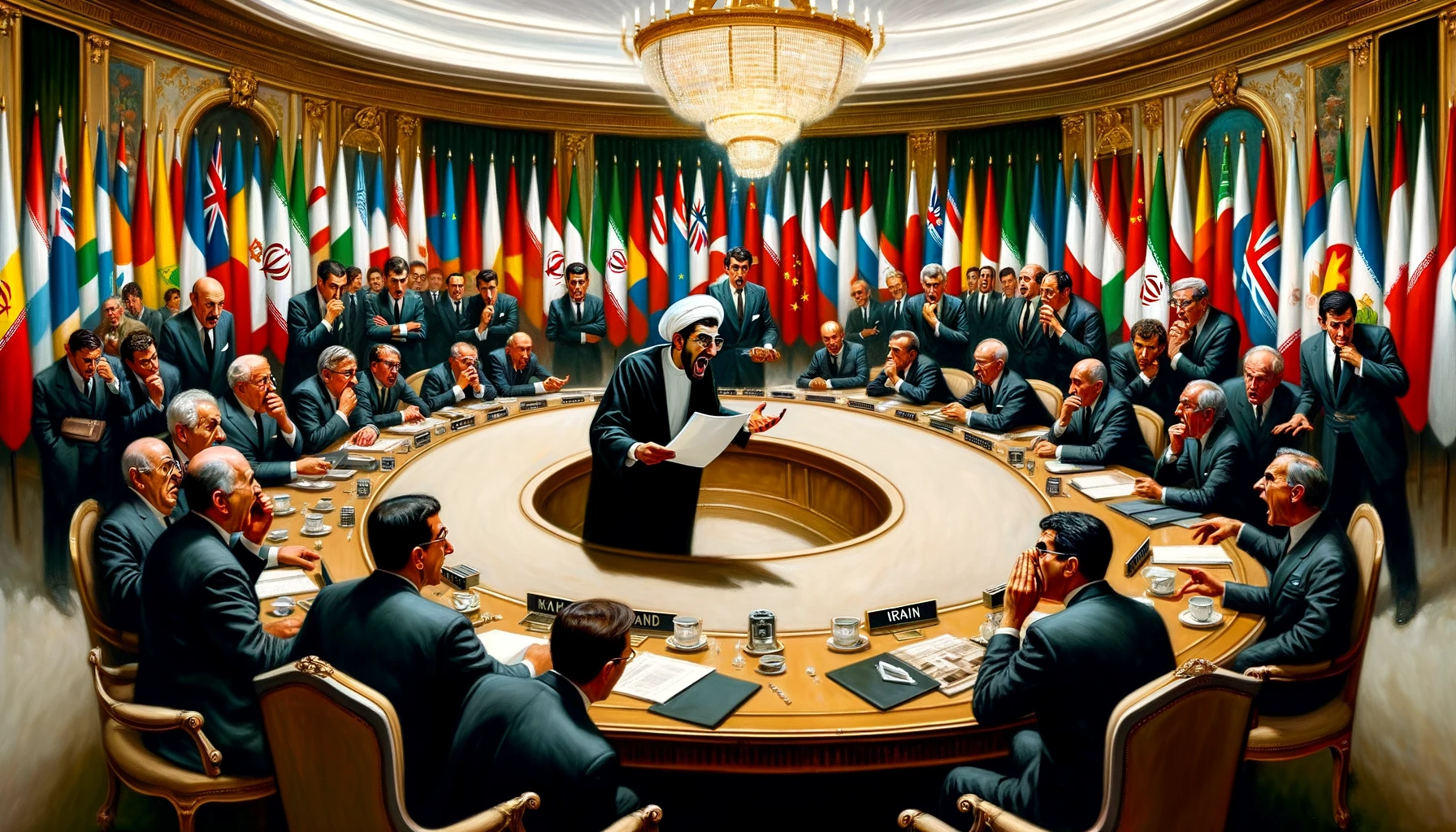In the latest chapter of the Middle East saga, Iran’s recent retaliation against Israeli aggression has raised more than just alarms—it’s also raised eyebrows across the globe. The international outcry isn’t so much about the use of force, but about who is using it and how they’re apparently not following the ‘unspoken rules’ of geopolitical engagement.
The world watched in bemused horror as Iran dared to launch a counterattack in response to an Israeli strike, a move many global leaders have condemned not for its legality, but for its audacity. “There’s an art to these things, a certain je ne sais quoi,” explained a French diplomat, twirling his mustache. “One simply does not retaliate without a subtler touch of diplomatic finesse—and perhaps a well-timed UN resolution.”
The crux of the issue, as outlined by several pundits on international TV, is that Iran seemingly missed the memo on the proper etiquette of international conflict. “It’s like bringing a knife to a chess game; it’s just not done,” remarked a British analyst, sipping tea with a disapproving frown.
This sentiment was echoed in an emergency session of the UN, where delegates debated not just the implications of Iran’s actions, but also whether there should be a new chapter in international law books titled “How to Respond to Conflicts Without Being Rude.” The U.S. ambassador stated, “We expect a certain decorum in international conflicts. You can’t just respond willy-nilly. There’s a time to turn the other cheek, and a time to file a strongly worded letter.”
On the streets and in the cafes, the public seems equally divided. “If someone throws a rock at your house, don’t you have a right to throw one back?” asked a man in a Tehran café, clearly puzzled. Meanwhile, a woman in Tel Aviv suggested, “Maybe they should have just tweeted their displeasure. It’s less messy.”
In an attempt to clarify these unspoken rules, a coalition of Western countries proposed a new international guideline, “The Proper Etiquette for International Retaliation.” This guide includes chapters on acceptable times to retaliate, approved weapons for genteel warfare, and tips on how to craft the perfect press release that says, “We’re not mad, just disappointed.”
As this drama unfolds, it remains to be seen whether Iran will take a step back and enroll in the proposed UN-sponsored workshop on “Conflict Etiquette 101.” For now, the international community holds its breath, its monocles firmly in place, awaiting Iran’s next move—hopefully, one that involves more diplomacy and fewer drones.

